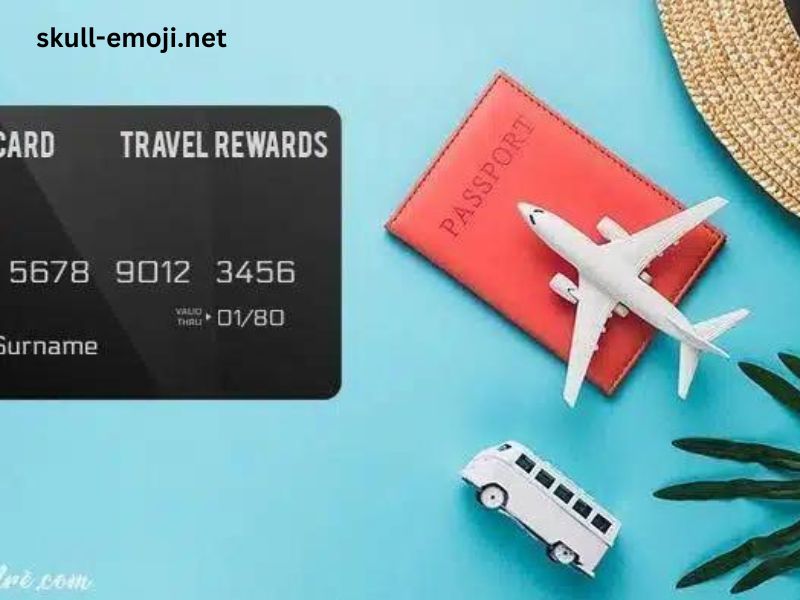In the world of corporate travel, managing expenses efficiently can be a challenge. Employees are often required to travel for business purposes, whether it’s attending conferences, meeting with clients, or scouting new opportunities. With travel expenses accruing quickly, organizations seek ways to streamline the process and ensure smooth reimbursement. Enter the travel card, a tool designed to simplify expense management, reduce administrative burdens, and provide a range of benefits to both employees and companies alike. This article will explore which item is a benefit of using the travel card, diving into its key advantages and how it revolutionizes business travel.
1. Simplified Expense Tracking and Reporting
One of the most notable benefits of using a travel card is the streamlined process it offers for expense tracking and reporting. Employees no longer need to manually collect and organize receipts or pay out of pocket for business expenses. When using a travel card, all transactions are automatically recorded in the company’s system, which means that expense reports can be generated with ease. This reduces the possibility of errors or lost receipts, helping to ensure that expenses are accurately reported and reimbursed in a timely manner.
Why It Matters:
- Accuracy: Automatic tracking of expenses ensures greater accuracy compared to manual processes.
- Reduced Paperwork: No more juggling multiple receipts or invoices. All expenses are compiled into one easy-to-access report.
- Time-Saving: With automated systems, employees spend less time preparing expense reports, allowing them to focus on core business tasks.
2. Improved Cash Flow Management
For employees, a significant advantage of the travel card is that they no longer need to use their personal funds to cover travel-related expenses. This means they can avoid the burden of waiting for reimbursement from the company, which can sometimes take weeks. The company directly covers the costs via the travel card, improving cash flow for employees and eliminating financial strain.
Why It Matters:
- No Out-of-Pocket Expenses: Employees can travel without worrying about dipping into personal savings to cover travel costs.
- Instant Coverage: Expenses are instantly charged to the company’s account, reducing any delays in processing payments.
- Financial Peace of Mind: Employees don’t have to wait for reimbursements, leading to less stress during travel.
3. Enhanced Control Over Travel Policies
Companies benefit from the travel card’s ability to enforce corporate travel policies. By providing employees with travel cards that come with preset spending limits, organizations can ensure that employees adhere to predetermined budgets for flights, hotels, meals, and other travel expenses. This level of control allows businesses to maintain better oversight of travel spending, reduce the risk of overspending, and stay within budget constraints.
Why It Matters:
- Budget Control: Businesses can set limits on travel card spending to align with corporate travel policies.
- Policy Enforcement: Travel cards can be restricted to certain vendors or expense categories, ensuring compliance with company rules.
- Spending Transparency: All transactions are recorded, providing visibility into how and where travel funds are being spent.
4. Rewards and Incentives
Many travel cards come with built-in rewards programs. These can include airline miles, hotel points, cashback offers, and discounts on travel-related services. Both companies and employees can benefit from these rewards, either by reinvesting them into future travel or by offering them as an incentive for frequent travelers. For employees who travel regularly, these rewards can quickly accumulate, offering significant savings or additional perks.
Why It Matters:
- Cost Savings: Rewards programs can result in substantial discounts on flights, hotels, and other travel-related services.
- Employee Incentives: Offering travel card rewards can serve as a bonus for employees who frequently travel.
- Corporate Benefits: Companies can reinvest rewards points into future travel, reducing overall expenses.
5. Fraud Protection and Security Features
Travel cards often come with robust fraud protection and security features. Since these cards are specifically designated for business travel expenses, they typically offer more secure and controlled usage than personal credit cards. Advanced security features include real-time transaction monitoring, fraud alerts, and the ability to freeze or cancel cards if suspicious activity is detected. Moreover, businesses can track spending in real-time, providing an extra layer of oversight and protection.
Why It Matters:
- Fraud Prevention: Real-time monitoring helps catch fraudulent activity early and can prevent significant financial losses.
- Security: Employees don’t have to use personal cards for business expenses, protecting their personal financial information.
- Account Control: Companies can easily freeze or cancel cards if they suspect misuse or theft, offering greater control over corporate funds.
6. Streamlined Reconciliation Process
At the end of a business trip, reconciling expenses can often be a tedious and time-consuming task. With travel cards, this process is made much simpler, as all transactions are recorded and categorized automatically. Companies can match these transactions to invoices and receipts, ensuring that all expenses are accounted for correctly. The reconciliation process becomes faster, more efficient, and less prone to human error, providing companies with a clear and accurate picture of their travel expenditures.
Why It Matters:
- Reduced Administrative Burden: Simplifies the reconciliation process, saving time for both employees and accounting departments.
- Error Reduction: Automatically matching expenses with receipts reduces the chances of mistakes in reporting.
- Faster Processing: Accelerates the process of finalizing travel expenses, allowing for quicker financial reporting.
7. Global Acceptance and Convenience
Corporate travel often involves international destinations. Travel cards are widely accepted across the globe, offering employees the convenience of paying for expenses in foreign countries without worrying about currency conversions or carrying large amounts of cash. Many travel cards are also affiliated with major payment networks (e.g., Visa, MasterCard), ensuring they can be used at hotels, restaurants, and transportation services worldwide.
Why It Matters:
- Currency Conversion: Employees don’t need to handle foreign currencies; transactions are automatically converted.
- Wide Acceptance: Travel cards are accepted in most locations, simplifying the payment process.
- Cashless Convenience: Employees can avoid carrying cash, reducing the risk of loss or theft while traveling.
8. Detailed Expense Analytics
Another benefit of using a travel card is the detailed reporting and analytics that businesses can access. Companies can gain insights into employee spending patterns, identify cost-saving opportunities, and make informed decisions about future travel budgets. By analyzing this data, companies can optimize their travel policies, negotiate better rates with vendors, and improve overall efficiency.
Why It Matters:
- Informed Decision-Making: Detailed analytics provide valuable insights into travel spending, helping companies refine policies.
- Cost Reduction: Identifying spending trends can help businesses negotiate better rates with airlines, hotels, and rental car companies.
- Policy Optimization: Data-driven insights allow companies to adjust travel policies to ensure they align with actual spending patterns.
9. Corporate Discounts and Partnerships
Many travel cards offer access to exclusive corporate discounts and partnerships with airlines, hotels, and car rental companies. These partnerships can result in lower costs for travel-related services, further helping companies to stay within their travel budgets. In some cases, businesses can negotiate special rates with vendors when employees use specific travel cards, providing even greater savings.
Why It Matters:
- Cost Savings: Corporate discounts can lead to significant reductions in travel expenses.
- Vendor Partnerships: Travel cards can unlock exclusive deals with preferred vendors, offering better rates.
- Efficient Travel Booking: Pre-negotiated rates and partnerships make the travel booking process smoother and more cost-effective.
10. Tax Compliance and Reporting
For companies, maintaining compliance with tax regulations is essential. Travel cards simplify the process of ensuring that all expenses are properly documented and categorized for tax purposes. In some cases, travel card providers offer detailed reports that can be easily integrated into the company’s tax filing systems. This not only makes tax reporting easier but also helps businesses avoid potential penalties for improper documentation.
Why It Matters:
- Tax Efficiency: Travel cards provide clear documentation of expenses, simplifying tax reporting.
- Compliance: Ensures that all travel expenses are properly categorized and accounted for, reducing the risk of tax errors.
- Reduced Audit Risk: Clear documentation makes it easier for companies to pass tax audits without issues.
Conclusion
Using a travel card provides a host of benefits for both employees and companies. From simplified expense tracking to enhanced control over travel policies, rewards programs, and improved security features, the travel card is a crucial tool for businesses that want to streamline corporate travel. By adopting travel cards, companies can ensure that travel expenses are managed efficiently, transparently, and in line with corporate goals, all while offering employees the convenience and financial security they need during their travels.



